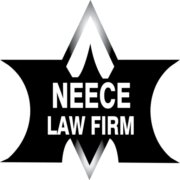Best Land Use & Zoning Lawyers in North Carolina
Share your needs with us, get contacted by law firms.
Free. Takes 2 min.
Free Guide to Hiring a Real Estate Lawyer
Or refine your search by selecting a city:
List of the best lawyers in North Carolina, United States
About Land Use & Zoning Law in North Carolina, United States
Land use and zoning law in North Carolina governs how land within municipalities and counties can be used and developed. These regulations outline permitted uses for properties, such as for residential, commercial, industrial, or agricultural purposes. Zoning ordinances help communities manage growth, protect property values, promote safety, and shape the overall character of neighborhoods. The framework for zoning in North Carolina is primarily governed at the local level, where city and county governments adopt ordinances and comprehensive land use plans. Compliance with these rules is essential when undertaking projects like building homes, starting businesses, subdividing property, or making changes to existing land uses.
Why You May Need a Lawyer
Working with land use and zoning regulations can be complex and challenging, especially since they may affect your property rights and future plans. You may need a lawyer if you encounter any of the following situations:
- You are denied a zoning permit or building permit
- You want to request a zoning variance or special exception
- You wish to contest a zoning decision by a local board
- You receive a zoning violation notice or enforcement action
- Your property is subject to rezoning or changes in zoning classification
- You are involved in disputes with neighbors or a homeowners association about land use
- You need clarity on development restrictions or subdivision regulations
- You plan to change land use or develop a large project
- Your property is being condemned under eminent domain
- You are buying or selling land and need to ensure compliance with zoning rules
An attorney can provide advice, represent your interests before local boards, and guide you through each legal step to help protect your investment and ensure your project complies with all applicable regulations.
Local Laws Overview
Land use and zoning in North Carolina are primarily controlled by local governments under the authority granted by state law, particularly North Carolina General Statutes Chapter 160D - Local Planning and Development Regulation. Cities and counties enact zoning ordinances that establish various zones (residential, commercial, industrial, etc.) and specify the types of uses permitted in each. Some important features of local zoning laws include:
- Zoning Districts: Localities divide areas into districts, each with specific permitted uses and development standards such as height, lot size, and setbacks.
- Conditional and Special Use Permits: Certain uses may be permitted only if specific conditions are met or after a public hearing and board approval.
- Variances: Property owners may request exceptions from some zoning requirements based on unique hardships.
- Zoning Amendments: Property owners or government bodies can propose changes to zoning maps or ordinances.
- Subdivision Regulations: Rules govern how land can be divided into lots and what improvements are required, like roads and utilities.
- Historic Districts and Overlay Zones: Additional rules may protect historic or environmentally sensitive areas.
- Enforcement: Legally enforceable rules with penalties for violations, typically handled by local planning or code enforcement departments.
Staying informed about local rules is crucial because ordinances can vary between municipalities and even between neighboring counties.
Frequently Asked Questions
What is zoning?
Zoning is a legal tool used by local governments to control how land is used and developed within their jurisdictions by dividing areas into different districts with specific regulations.
How do I find out my property's zoning classification?
You can contact your local city or county planning department or check their official website for interactive zoning maps and other information. Zoning classifications are typically recorded as part of public records.
Can I change the zoning on my property?
Yes, you can apply to have your property rezoned. Rezoning requires submitting a formal application to the local planning board or city council, who will consider your request in light of local land use plans and public input.
What is a variance and how do I get one?
A variance allows you to deviate from certain zoning requirements if you can show that strict enforcement would cause you unnecessary hardship not experienced by others. Variances are granted by local boards, typically after a public hearing.
What is a special use or conditional use permit?
These permits allow specific land uses that may require additional oversight to ensure they are compatible with surrounding properties. Applications are reviewed by local boards and may be subject to special conditions.
Can my neighbor challenge my zoning application?
Yes, neighbors, affected parties, or community groups have the right to participate in hearings, voice concerns, and sometimes appeal zoning decisions.
What happens if I violate zoning laws?
Land use violations can result in fines, orders to cease use or demolish structures, and even court action. Promptly addressing any notices or enforcement actions is critical to avoid escalating penalties.
Does North Carolina have statewide zoning or are all rules local?
There are some state regulations, but nearly all zoning and land use rules are adopted and enforced at the municipal or county level.
What role do comprehensive plans play in zoning?
Comprehensive plans are guiding documents that set the long-term vision for community development. Zoning regulations are designed to implement the goals outlined in these plans.
Do I need a lawyer for land use and zoning issues?
While not always required, legal guidance can be invaluable for navigating complex cases, appealing decisions, understanding your rights, or dealing with enforcement actions. A lawyer can help ensure your interests are represented.
Additional Resources
If you are seeking further information or assistance, consider these resources:
- Local city or county planning and zoning departments: Most have websites, staff directories, and public records on zoning.
- North Carolina Department of Commerce - Division of Community Assistance: Provides guidance to local governments and citizens on land use planning matters.
- UNC School of Government: Offers publications, workshops, and answers to common questions on North Carolina land use and zoning law.
- North Carolina Bar Association - Real Property Section: Can help connect you with attorneys experienced in land use and zoning law.
- Local government meeting minutes and agendas: Review for upcoming zoning changes or appeals in your area.
Next Steps
If you need legal help for a land use or zoning issue in North Carolina:
- Gather all relevant documents, such as property deeds, zoning maps, plans, notices, or board decisions.
- Contact your local planning or zoning department for information on procedures and deadlines that may affect your case.
- Consult with a qualified North Carolina attorney who specializes in land use and zoning law to review your options and represent your interests.
- Keep track of any correspondence or hearing dates to ensure timely response to any deadlines.
Taking prompt, informed action with the help of a legal professional can help you resolve land use and zoning matters and avoid costly complications.
Lawzana helps you find the best lawyers and law firms in North Carolina through a curated and pre-screened list of qualified legal professionals. Our platform offers rankings and detailed profiles of attorneys and law firms, allowing you to compare based on practice areas, including Land Use & Zoning, experience, and client feedback.
Each profile includes a description of the firm's areas of practice, client reviews, team members and partners, year of establishment, spoken languages, office locations, contact information, social media presence, and any published articles or resources. Most firms on our platform speak English and are experienced in both local and international legal matters.
Get a quote from top-rated law firms in North Carolina, United States — quickly, securely, and without unnecessary hassle.
Disclaimer:
The information provided on this page is for general informational purposes only and does not constitute legal advice. While we strive to ensure the accuracy and relevance of the content, legal information may change over time, and interpretations of the law can vary. You should always consult with a qualified legal professional for advice specific to your situation.
We disclaim all liability for actions taken or not taken based on the content of this page. If you believe any information is incorrect or outdated, please contact us, and we will review and update it where appropriate.
Browse land use & zoning law firms by city in North Carolina
Refine your search by selecting a city.













